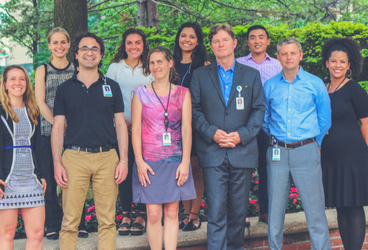
December 15, 2017 |
Institute Update: Letter from the Director 2017
from John F. Kelly, Ph.D., ABPP
As 2017 comes to a close, I wanted to take a minute to reflect back on the past 12 months.
Many causes for celebration, but also great sadness as we have witnessed the loss of so many more people to the opioid overdose epidemic.
With overdose deaths increasing across the country, decades of research was pushed into the national spotlight, highlighting both the progress we have made in understanding treatment and recovery from substance use disorders, but also shining light on some of the gaps in research, unknowns that reveal crucial work that remains to be done.
Busy and productive as ever, The Recovery Research Institute finished the National Recovery Study, obtaining the first-ever nationally representative sample of Americans in recovery. Findings from the study revealing the most accurate estimate to-date, indicated that 22.35 million (9.1%) American adults have resolved a significant alcohol or other drug problem. Just over half of these individuals (51%) reported alcohol as their primary problem; a smaller number reported cannabis (11%), stimulants such as cocaine (10%) or methamphetamine (7%); about 5% of individuals resolving a substance problem, reported opioids as their primary substance.
Of note, this national study found that:
- Approximately half of all Americans who have resolved serious substance problems, did so without any assistance such as treatment, detox, 12-step (e.g. AA) or other mutual-support group meetings, medications, or faith-based groups.
- Another intriguing finding from this study was that, although we often refer to individuals resolving serious alcohol or other drug problems as being “in recovery”, only about half of the sample (46%) actually self-identified in this manner.
In other research news from 2017, we successfully completed and delivered a systematic scientific review of all major recovery support services in the US to inform government strategy and policy. We are now in the final stages of finishing up the first-ever systematic study of addiction Recovery Community Centers. We have also laid the groundwork to launch several new studies including a longitudinal study of long term remission and recovery in 2018.
Alongside the research, we continued to expand national and international outreach and educational efforts through narrative and multimedia: with our monthly Recovery Bulletin, live event presentations across the country, social media engagement with an audience of over 80,000, dissemination of addiction science through a Psychology Today blog spot, meetings with national and international government officials including British Prime Minister, Teresa May, in London, and the production of numerous infographics to bring the research to life for a wide variety of audiences.
Our institute is working tirelessly to enhance recovery through science.
Now more than ever, we need to translate, summarize, synthesize, and disseminate the growing body of evidence on what is known about treatment and recovery, to inform decision-making in national policy and healthcare.
Best wishes and happy holidays,
Founder & Director of the MGH Recovery Research Institute
Elizabeth R. Spallin Associate Professor of Psychiatry, Harvard Medical School

